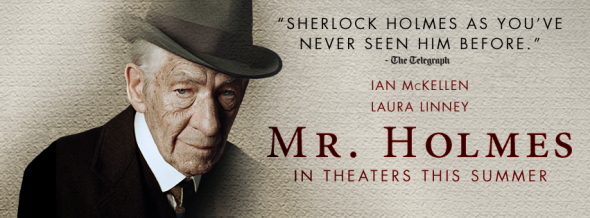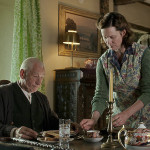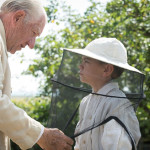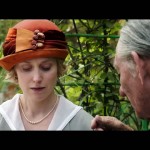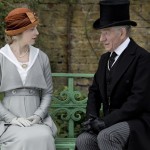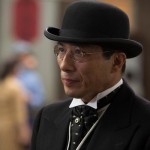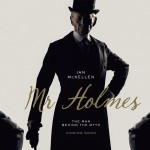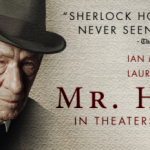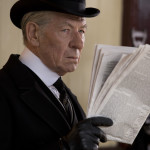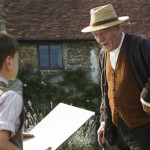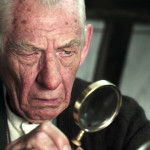I’ve blogged before about Sherlock Holmes and how his ubiquity demonstrates the paucity of imagination among the makers of films and TV programmes, in that they find it easier to get funding to reinvent a character that should have been consigned to history and the pages of literature a very long time since.
The character featured in 4 novels and 56 short stories, quite apart from stories written by other authors. But even that pales into insignificance behind the list of actors who have played the fictional amateur sleuth; no fewer than 75 are recorded by Wikipedia, and even then I wouldn’t be surprised if a few had been missed along the way – which puts the 8 Bond actors into perspective!
What can there possibly be to learn about Holmes that hasn’t been done a thousand times before? The recent TV series starring the astoundingly busy Benedict Cumberbatch brought Holmes into the modern day with inventive genius, and earned massive plaudits from eager fans in the process; to me it seemed like sacrilege, such that Sir Arthur Conan Doyle was probably turning pirouettes in his grave. I have no axe to grind with the creative process, only that it corrupts the character and takes him way beyond his context in search of new audiences. Maybe I’m wrong, but I can’t see Conan Doyle approving.
With that in mind, was there any point in adding another movie to the burgeoning list? We’ve had a young Holmes in prequels, so now we have an old and increasingly aphasic Holmes – yeah, great.
Actually, and much to my surprise, Mr Holmes bucks the trend: it is faithful to the original through a neat device, but in the process has pertinent things to say about the nature of fact and fiction, and especially the deceptive decay of memory. It is intelligently scripted, piquant and poignant, beautifully acted and works better almost any other Holmes adaptation I’ve seen – perhaps most of all because it could have been any old man struggling with memories of critical incidents 35 years previously, not especially Holmes.
Adapted from Mitch Cullin‘s 2005 novel A Slight Trick Of The Mind, it delves into the mind of a 93 year old Holmes in 1947 as he struggles to recall the events of his final case, the one that caused him to retire to Sussex to keep bees in a house within sight of the chalk cliffs.
As a mystery this is a gentle film, certainly not a classic whodunnit, more of an epitaph to human psychology and how the deductive powers of Holmes succeeded but underestimated the impact of this revelation. As such, it delves into territory beyond even the logical powers of the great man – the bizarre and unsettling world of the human mind. I won’t tell you the denouement, but the conversation in a park between Holmes and Ann Kelmot is what haunts Holmes all these years.
As we enter the movie, he has just returned from Japan, whence he brings a Prickly Ash plant in the hope of preserving or regenerating his memory before he becomes detached from consciousness, royal jelly from his bees having made no difference. It a constant battle. As a subplot Holmes is also dealing with the Japanese friend who invited him, and who found the plant amidst the appalling aftermath of the Hiroshima bomb. The visit is not all it seems, but then that’s what you’d expect.
Another subplot is the rising tide of bee deaths from his hives. Holmes has an ally and partner in crime, as it were, in his quest for the truth about his client’s wife, Mrs Kelmot (Hattie Morahan), and the bees. This is Roger (Milo Parker), the son of his housekeeper Mrs Munro (Laura Linney), a woman concerned by the close attachment between the sleuth and her bright but impressionable son.
Mrs Munro’s intended departure gives rise to the only in-depth instance of deductive reasoning within the film, welcome when it comes. And there are plenty more fine British character actors in evidence too, all cameo roles – John Sessions, Roger Allam, Frances de la Tour and Phil Davies among them. Full credit to young Mr Parker too – he gives as good as he gets throughout and clearly relishes the interchanges with his masterly co-star.
In fact, there is much to admire in all the performances here, but this is unmistakably Sir Ian McKellen‘s film. He plays Holmes with a fragility belied by an inner depth and purpose belying his years, a sour if bemused face and sizeable eye bags. He is magnificent, towering; you could not wish to find a greater performance in the role. All other Holmes performances should be consigned to history, being by comparison caricatures.
Indeed, the primary deceit is that the Holmes painted by Dr John Watson in the books is different to the Holmes of “real life” – since the address in Baker Street was not actually 221B, Holmes never affected a deerstalker, preferred a cigar to a pipe and quite probably never played the violin or took drugs. This, we are implicitly told, tongue-in-cheek, is the only REAL Holmes.
I wish Holmes a long and happy retirement, but this seems a fitting epitaph for the character. Alas, profiteering TV and movie execs will not let the old man alone, so further Holmes adventures seem inevitable. A shame, but as for me I think it time to return to my volume of the collected works of Sir Arthur Conan Doyle and read Dr Watson’s account of the adventures of Sherlock Holmes – as it should be.

